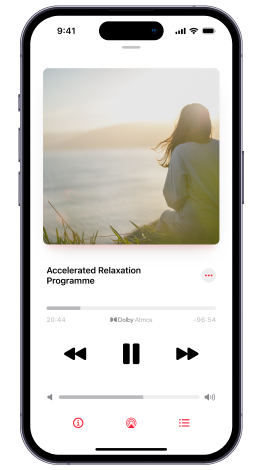If you’re looking to explore hypnotherapy as an option for you, it’s a really good idea to have an initial consultation first. This blog explains what happens when either Lucy, my assistant, or I have an initial 20 minutes consultation with every single client.
Between us, we’ve done many thousands and they are hugely beneficial. And, with their being hundreds of different kinds of therapies and ten’s of thousands of therapists working, the consultation is key to ensure that you find the right therapist and therapeutic modality to you.
There are a huge amounts of hypnotherapists in London, indeed anywhere, so you can afford to be fussy and they are totally free!
I’m aware that some therapists just allow their clients to book via an automated system and if that works for them and for you as a client, great. However, I think given that therapy is such a personal investment, that to not have a consultation could lead to very random outcomes.
Structure of a consultation:
Before any hypnotherapy session even begins, it starts with the initial ‘phone consultation. This is really important as it can make sure that you choose the right therapist and we ensure we only work with clients who we can help.
The consultations last up to 20 minutes and can make sure your needs are matched with a therapist that can help you.
Not all therapists do offer consultations, which I personally think is bonkers. This is because otherwise you could end up booking an appointment online and then turn up to meet a random therapist on the day of your appointment, who may not even be a specialist in the area you’re wanting to get some help with, or you even get on with.
Hypnotherapy is one of the most personal things in the world you can do and it certainly shouldn’t be like a blind date, where you can turn up and instantly know that this person looked good on paper and isn’t well matched in reality.
The consultation is very to the point and certainly isn’t about trying to do therapy on the ‘phone. It’s about seeing is clinical hypnotherapy right for you, would I be the right hypnotherapist for you and if so, what can be done.
Typical questions asked and why:
Below I’ve listed a range of the typical (though not exhaustive list of) questions asked during a consultation for hypnotherapy. I’ve also attached the reason why we ask the questions. When I hear the answer to these questions, I always say to clients that I’ll give you an honest answer if I think I can help you or not.
It may be a very obvious thing to say and therapy is a very personal experience. As such, it’s important to be open in the consultation.
The most common questions asked in an initial consultation – and why:
1. What are you looking to get some help with? – This helps us determine if what you’re looking to get some help with is something that we are able to treat. I’m able to treat many areas e.g. hypnotherapy for confidence & hypnotherapy for confidence. Equally, there’s many areas I’m not e.g. hypnotherapy for addictions, pain.
It’s here where clients may talk about expectations and it’s important therapists do manage your expectations. Yes, change can be absolutely achieved. Having worked with in excess of 2500 people I know this. That said, we’re all individuals and some people work better than others in different therapeutic modalities.
2. Have you had any therapy or coaching to help with this problem so far? This helps me understand where you are at in terms of the problem. Sometimes, some clients have seen multiple therapists of many disciplines. This can mean many things. With some clients it can mean they just haven’t found the right course of treatment. With some clients it can mean that they have seen many therapists and are less able to change.
3. What do you believe about your problem? Some clients believe they can totally overcome their issue and others don’t. A client’s answer will help inform how to work with them in their hypnotherapy appointment. A person who believes they can get better is more likely to allow the placebo affect to take place. Whilst equally, those clients who don’t, are more likely for the nocebo effect to be triggered. Working with beliefs can form a key part of successful outcomes in hypnotherapy because as Henry Ford is rumoured to have once said ‘whether you believe you can, or you can’t, you’re right’.
4. What’s happened to make you want to get some help with this now? Often something specific has recently happened to make a client get in touch e.g. a bad blushing incident. Or there can be something about to happen in their lives e.g. going on a flight and being phobic of it. It’s key to get a handle on this, as opposed to dealing with abstract memories or indeed there being no memories.
5. What do you do for a career and how old are you? I’m trying to find a bit more about you as a person here. I also know my typical client and whilst I am open to seeing virtually everyone, I’m just interested in who you are and what you do. Sometimes, this can also be key to the problem, as many clients have challenges in their professional lives e.g. public speaking.
This question is also a classic rapport builder for me, which is an issue I’ve wrriten about before.
6. Why are you looking to get some help with hypnotherapy specifically? This question helps me understand what you’re potential expectations of hypnotherapy is. I then may need to manage a potential clients expectations, based on the answer. I explain to clients that it’s not a magic wand, that it’s absolutely nothing like you see on TV and it’s very active. This is very important as some clients (perhaps not unreasonably based on media stereotypes think I’m going to say ‘close your yes, count down from 10-1 and when your eyes open, you’re problem will have disappeared’.
If only it were that simple…
7. What are you personally looking for in a therapist? Everyone understandably wants the right therapist for them and that’s totally possible with the huge volume of therapists available. However, if someone were to say to me that they wanted a therapist who was a soft and cuddly counselling type, I would say that I wasn’t the best choice for them. However, if they wanted someone who direct and action oriented, then that would be appropriate.
The consultation is as much for you as a potential client as much as it is for me, to be able to determine if I can help you and would we be a good fix.
If you were to find any of these questions too ‘weird or personal’, then I’d strongly suggest we don’t have a chat.
What happens then?
Essentially several things can happen. If I think I can help you and you want me to work with you, we can then scope out what this may look like in terms of sorting out your appointment/s. If however, you didn’t think I sounded like someone you wanted to work with, or if I felt I couldn’t help you, then I would say this and point you in the direction I best saw fit. The final option is that I may be able to help you, however, the rapport and chemistry between us wouldn’t be appropriate. If I ever sense that, I refer people to the online Hypnotherapy Directory, or a couple of other therapists whom I know and really rate. Please don’t take this the wrong way if I do say that, I just want you and I to have as good an outcome as possible.
So yes, consultations are very important in order to have successful outcomes. And if you’d like to have a consultation with Lucy or I, to work out if hypnotherapy is the right choice for you, then do get in touch, via the quick contact form.
Thanks for reading,
James

